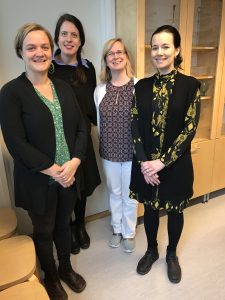
Hanna Posti-Ahokas, Salla Venäläinen, Hille Janhonen-Abruquah, Sonja Anttila (left to right). Picture: Päivi Palojoki
Contact information: e-mail: first name.last name@helsinki.fi
https://www.facebook.com/heedresearchproject/
RESEARCHERS
Hille Janhonen-Abruquah
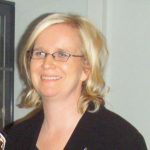 In my daily work, I am fortunate to meet the future Home Economics teachers as I am an university lecturer at the Faculty of Educational Sciences at Helsinki University. Within my teaching career from compulsory school to polytechnic and university teaching I have seen schools becoming increasingly diverse. This was one of the starting points for the HEED-research project as I know that Home Economics as a school subject has an important role to play in building the future schools in diverse society. Currently I am a principal investigator for the HEED-research project and collaborating with a wonderful research team. Would you like to join the team? Please, contact us.
In my daily work, I am fortunate to meet the future Home Economics teachers as I am an university lecturer at the Faculty of Educational Sciences at Helsinki University. Within my teaching career from compulsory school to polytechnic and university teaching I have seen schools becoming increasingly diverse. This was one of the starting points for the HEED-research project as I know that Home Economics as a school subject has an important role to play in building the future schools in diverse society. Currently I am a principal investigator for the HEED-research project and collaborating with a wonderful research team. Would you like to join the team? Please, contact us.
https://researchportal.helsinki.fi/en/persons/hille-janhonen-abruquah
I am also happy to present a newly published book as one of the outcomes for the project I was engaged recently: Culturally Responsive Education: Reflections from the Global South and North
Hanna Posti-Ahokas

Teaching courses focusing on gender, interculturality and equality in the home economics teacher education programme have been important contexts for thinking with teacher students on issues related to diversities. Currently, I am analyzing Home Economics teacher students’ views on diversities in order to better respond to the learning needs of future Home Economics teachers. I study how Home Economics teacher education students perceive the significance of cultural diversity and gender in Home Economics education and analyse which kinds of knowledge and skills future Home Economics teachers consider essential in dealing with cultural diversity and gendered practices in schools.
Salla Venäläinen

I am happy to be a part of HEED-team. My main research interest is how new national core curricula 2014 will change school cultures and learning environments in Finland. Furthermore, I am interested in teachers and pupils work together to create better opportunities for educational work in schools and for meaningful learning for all pupils. Currently, study focus is on differences in girls´and boys´ achievement in Home Economics subject. The differences are examined through the data of the assessment of learning outcomes in home economics together with objectives, challenges and opportunities of new national core curricula.
Sonja Anttila
I work as a doctorant / PhD student in HEED-research project. My dissertation research focuses to describe and understand the family formation process of lesbian, gay, bi-sexual, trans and queer families (henceforth referred to as LGBTQ-families) with children. My major interests in research are intersectionality in family studies, gender sensitive education, various kinds of differences and everyday phenomena. 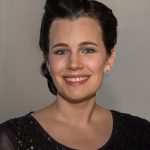
It is interesting to collaborate with researchers who focus on Home Economics science thinking and combining the theoretical aspects of gender studies and queer research to address possibilities for better understanding LGBTQ-families in everyday life contexts. The school teachers meet LGBTQ-families in their work and among the pupils there are members of LGBTQ-families-to-be. It is important that the studies that have been made of the LGBTQ-families are connected to the school life.
Kati Oikarinen
My research interests have originated from my work 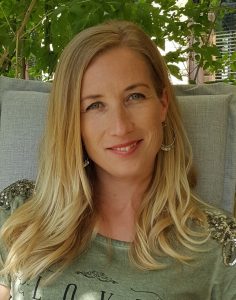 experiences as a teacher. Constantly diversifying schools are challenging teachers’ professional development so that they could act to increase equality and well-being in the schools. The topic of my doctoral dissertation reflects changes in the society which are realized in the daily work of teachers. I am interested in developing teachers´expertise towards culturally responsive pedagogy and social sustainability. My major interests in research are video enhanced reflective practices and peer-group mentoring as methods to improve professionalism. I believe that strength- and empowerment-based approach develops teachers´ skills in classroom interaction. I am proud to be part of this team and make together important topics of diversity more visible.
experiences as a teacher. Constantly diversifying schools are challenging teachers’ professional development so that they could act to increase equality and well-being in the schools. The topic of my doctoral dissertation reflects changes in the society which are realized in the daily work of teachers. I am interested in developing teachers´expertise towards culturally responsive pedagogy and social sustainability. My major interests in research are video enhanced reflective practices and peer-group mentoring as methods to improve professionalism. I believe that strength- and empowerment-based approach develops teachers´ skills in classroom interaction. I am proud to be part of this team and make together important topics of diversity more visible.
Ilona Erämo
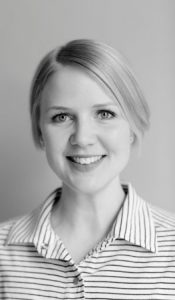
Tein HEED-hankkeessa kotitaloustieteen pro gradu -tutkielman koskien peruskoulun kotitalousopetusta ja sukupuolten välistä tasa-arvoa ja moninaisuutta. Pro gradu -tutkielmani käsittelee sukupuolten välisiä eroja kotitalouden oppimistuloksissa. Tutkielmani aineisto on osa kotitalouden oppimistulosten valtakunnallista arviointia, jonka perusteella sukupuoli oli merkittävä tekijä arvioinnissa menestymistä tarkasteltaessa. Aineiston perusteella selvitin, millaiset kotitalousopettajan opetusmenetelmät tai opetuksen käytännöt johtavat pojilla ja tytöillä hyviin oppimistuloksiin. Pro gradu -tutkielmani on luettavissa:
Erämo, Ilona (2019). Kotitalouden oppimistulosten arviointi: sukupuolen ja tasa-arvon välinen yhteys
Jonna Wirén
Olen mukana HEED- hankkeessa maisteriopiskelijana Pro gradu-tutkielmani puitteissa. Tutkielmassani tarkastelen tyttöjen ja poikien välistä eroa kotitalous-oppiaineen osaamisessa. Olen kiinnostunut erityisesti siitä, millaisia eroja tyttöjen ja poikien kotitalouden harrastuneisuudessa sekä suhtautumisessa oppiainetta kohtaan esiintyy. Aineistona käytän kotitalouden osaamiseen kansallista arviointi -aineistoa vuodelta 2014. Aineistosta esiin noussut systemaattinen ero tyttöjen ja poikien osaamisessa on tasa-arvon ja moninaisuuden näkökulmasta varsin kiinnostava.
Päivi Palojoki
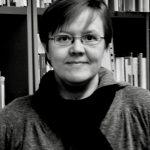 Professor Päivi Palojoki is the head of a research group, Food, culture and learning, at the Faculty of Educational Sciences, University of Helsinki, Finland. Her research focuses on subject-didactic questions related to the teaching and learning of home economics within various cultural settings and school levels, ranging from comprehensive school to higher education. She is especially interested in formal teaching and learning situations, such as in the classroom, but also examines informal learning environments such as homes or NGOs.
Professor Päivi Palojoki is the head of a research group, Food, culture and learning, at the Faculty of Educational Sciences, University of Helsinki, Finland. Her research focuses on subject-didactic questions related to the teaching and learning of home economics within various cultural settings and school levels, ranging from comprehensive school to higher education. She is especially interested in formal teaching and learning situations, such as in the classroom, but also examines informal learning environments such as homes or NGOs.
In her view, teachers’ practical mastery of food preparation skills is key for obtaining a high level of professionalism. Without having one’s own foundation of strong practical skills, the home economics teacher will be unable to focus on pedagogical issues within the learning environment, and provide individual support for their students build a safe and equal learning environment where the students feel free to experiment and learn new things. Home economics teachers in higher education must find a balance between cultivating generic skills (i.e., being reflective and critical) and subject-specific skills (i.e., having practical skills and knowledge of sustainable choices in everyday life).
The whole research group has actively promoted national and international research co-operation, participated in discussions on our latest research findings, consulted, and tutored young researchers, as well as organized expert meetings, seminars, and symposiums. The HEED-team, led by university lecturer, PhD Hille Janhonen-Abruquah, is raising important issues related to home economics education: pedagogical themes such as diversity, gender and equality in schools; transnationality, culturally responsive education, and multicultural education in schools are key issues when putting the new Finnish national curriculum into practice.
https://blogs.helsinki.fi/kotitalouspedagogiikka/
Main research partners include:
Finnish Home Economics Teachers’ Association
Research group on global education and global responsibility in higher education (Elina Lehtomäki, University of Oulu; Josephine Moate and Hanna Posti-Ahokas, University of Jyväskylä) Latest publication
Swedish School of Social Science (Anna-Leena Riitaoja)
The Finnish Education Evaluation Centre (Salla Venäläinen)
